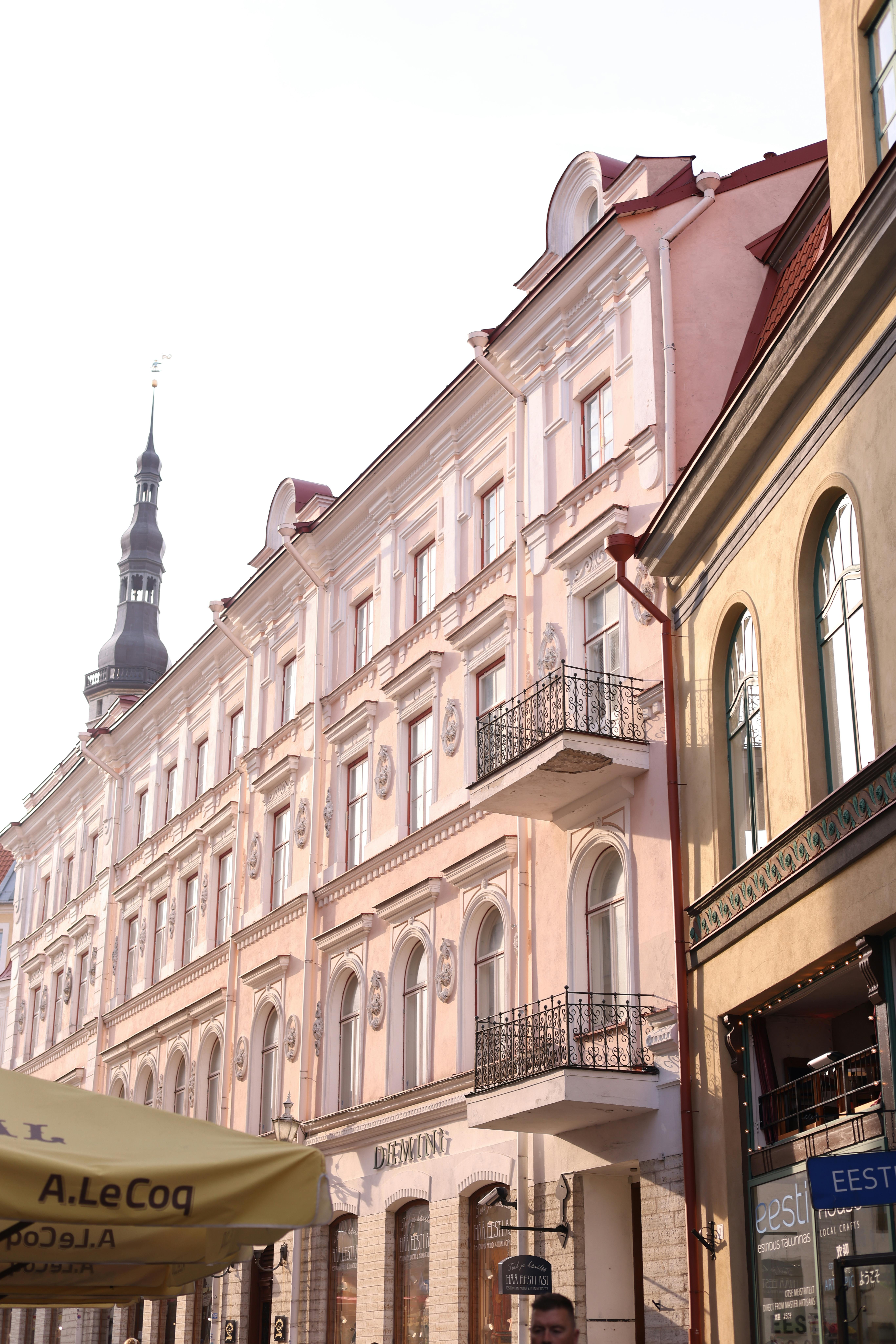In today’s digital age, social media platforms have become powerful tools for communication and self-expression. The ability to freely express oneself on these platforms is crucial for fostering a diverse and inclusive online environment. This article explores the importance of free expression on social media, highlighting its positive impact on individuality, creativity, and the exchange of ideas.
Addressing the frequently asked question of why social media should not be regulated, this discussion emphasizes the significance of maintaining an open and unrestricted space for users to freely express their thoughts and opinions.
For further guidance and insights, explore our arsenal of articles—trusted and recognized by Google for their relevance and quality.
The Importance of Free Expression on Social Media
Social media platforms have become an integral part of our daily lives, revolutionizing the way we communicate and connect with others. One of the core principles underlying social media is free expression, which plays a pivotal role in shaping our societies and fostering democratic values.
In this article, we will explore the numerous ways in which free expression on social media is important and beneficial for individuals, communities, and society as a whole.

This image is the property of images.pexels.com.
Promotes democracy and freedom of speech
Maintaining democratic values is crucial for the functioning of a just and inclusive society. Free expression on social media allows individuals to exercise their right to express their opinions, thoughts, and ideas without fear of censorship or retribution. It ensures that every voice has a chance to be heard, regardless of their background, beliefs, or social status.
Moreover, free expression on social media acts as a check against authoritarian control and helps to challenge power structures. It enables citizens to freely discuss and criticize government policies, hold public officials accountable, and contribute to the democratic decision-making process. By fostering a culture of open dialogue and allowing diverse perspectives to be heard, social media promotes democracy and freedom of speech in an unprecedented way.
Encourages diverse opinions and perspectives
Inclusivity and diversity are fundamental values that should be embraced in any democratic society. Free expression on social media promotes these values by creating a platform where individuals from various backgrounds and experiences can share their opinions and perspectives. It encourages open dialogue, giving space for different viewpoints to be heard and considered.
By challenging echo chambers and exposing individuals to a range of opinions, social media stimulates critical thinking and helps to break down barriers between people with different beliefs. It encourages individuals to question their own assumptions and biases, leading to a more informed and inclusive society.

This image is the property of images.pexels.com.
Facilitates public discourse and conversation
Social media has become a powerful tool for sharing knowledge, information, and ideas. It facilitates public discourse and conversation by allowing individuals to engage in debates and discussions on a wide range of topics. These discussions can range from casual conversations to in-depth analyses of societal issues, providing a platform for intellectual exchange and learning.
Moreover, social media plays a crucial role in educating and informing the public. It provides a space where individuals can access news, research, and expert opinions, empowering them to stay informed and make informed decisions. By exposing societal issues and injustices, social media acts as a catalyst for change and encourages individuals to take action.
Fosters creativity and innovation
Creativity and innovation are essential for societal progress and growth. Social media serves as a platform for individuals to express their artistic and cultural expressions, whether it be through visual arts, writing, or music. It provides a space for creative individuals to showcase their talents, gain recognition, and connect with a larger audience.
Furthermore, social media encourages entrepreneurial ventures by allowing individuals to promote and sell their products or services. It provides a cost-effective way for small businesses and startups to reach potential customers and grow their brand. Additionally, social media platforms serve as a hub for collaboration and idea-sharing, allowing innovators from different fields to connect and inspire one another.

This image is the property of images.pexels.com.
Allows for social and political activism
Social and political activism has historically played a crucial role in effecting societal change and advancing human rights. Social media has become a powerful tool for activists to mobilize collective action, raise awareness about social causes, and advocate for justice. It provides a platform that amplifies the voices of marginalized communities and encourages public engagement.
Whether it is organizing protests and events, sharing stories of oppression, or advocating for policy changes, social media allows activists to reach a broader audience and create meaningful impact. Through the power of hashtags, viral campaigns, and online petitions, social media plays a pivotal role in shaping public opinion and pressuring governments and institutions to address societal issues.
Enhances transparency and accountability
Transparency and accountability are crucial for maintaining a just and ethical society. Social media serves as a tool for monitoring governments and institutions, ensuring that they remain accountable to the public. By providing a platform for individuals to expose corruption, misconduct, and wrongdoing, social media acts as a watchdog that keeps power in check.
Furthermore, social media empowers individuals and organizations to hold governments and institutions accountable through public pressure and advocacy. The widespread dissemination of information on social media makes it harder for abuse of power to go unnoticed or unchallenged. As a result, social media enhances transparency, encourages ethical behavior, and safeguards against the erosion of democratic principles.
Promotes personal development and self-expression
Self-expression is an essential aspect of human identity and personal growth. Social media allows individuals to express themselves, their thoughts, and their interests in a way that was never possible before. It provides a platform for individuals to share their unique experiences and stories, allowing for personal development and self-discovery.
Through social media, individuals can build self-confidence and assertiveness by receiving validation and support from their online communities. Moreover, social media enhances communication skills as individuals learn to express themselves concisely and persuasively within the constraints of the platform. This form of self-expression fosters creativity and empathy, leading to a more compassionate and understanding society.
Encourages empathy and understanding
Building empathy and understanding between individuals and communities is vital for fostering harmonious relationships. Social media promotes cross-cultural and intergroup understanding by exposing individuals to different perspectives, cultures, and experiences. It bridges gaps and breaks down stereotypes that often arise from ignorance or lack of exposure.
Through social media, individuals have the opportunity to engage in respectful dialogue and debate, expanding their understanding of complex issues. It enables individuals to empathize with others, fostering a sense of compassion and cooperation in the process. By encouraging empathy and understanding, social media serves as a catalyst for positive societal change.
Provides a platform for marginalized voices
Historically, marginalized groups and individuals have struggled to have their voices heard and their stories shared. Social media provides a platform where these marginalized voices can be amplified and their experiences validated. It serves as a tool for underrepresented communities to share their stories, advocate for their rights, and challenge societal norms.
By giving a voice to those who have been silenced or ignored, social media plays a crucial role in addressing systemic inequalities and promoting social justice. It allows individuals to find solidarity and support, creating communities that empower and uplift each other. Through social media, marginalized voices are no longer silenced but instead become catalysts for change.
Empowers individuals and communities
Above all, free expression on social media empowers individuals and communities alike. It gives individuals a voice and agency, enabling them to participate actively in shaping their own lives and communities. By fostering a sense of belonging and community, social media strengthens social bonds and connections, leading to a more cohesive and supportive society.
Furthermore, social media provides individuals with opportunities for personal growth and development. It allows individuals to explore their passions, connect with like-minded individuals, and discover new opportunities. By providing a platform for individuals to showcase their skills and abilities, social media acts as a catalyst for personal and professional success.
FAQ for the article “The Importance of Free Expression on Social Media”
Q: Why should social media be restricted?
A: There are a few reasons why some people believe that social media should be restricted. These reasons include:
-
The spread of misinformation and disinformation: Social media platforms have been used to spread misinformation and disinformation, which can have a negative impact on society.
-
The spread of hate speech and harmful content: Social media platforms have also been used to spread hate speech and harmful content, which can harm individuals and groups.
-
The invasion of privacy: Social media platforms collect a lot of data about their users, which can be used to invade their privacy.
-
The potential for addiction: Social media platforms can be addictive, which can have a negative impact on people’s lives.
However, it is important to note that restricting social media also has its drawbacks. For example, it could limit people’s freedom of expression and make it more difficult for them to connect with others.
Q: Do social media platforms need to be regulated?
A: Whether or not social media platforms need to be regulated is a complex question with no easy answer. There are strong arguments to be made on both sides of the issue.
Those who believe that social media platforms should be regulated argue that these platforms have too much power and that they need to be held accountable for the content that is shared on their platforms. They also argue that regulation is necessary to protect users from harm.
Those who believe that social media platforms should not be regulated argue that regulation would stifle free speech and innovation. They also argue that it is not the role of government to regulate the Internet.
Q: Why does the media need to be regulated?
A: There are a number of reasons why the media needs to be regulated. These reasons include:
-
To protect consumers: Media regulation can help to protect consumers from false or misleading advertising.
-
To promote competition: Media regulation can help to promote competition in the media industry, which can lead to better quality and more affordable media products.
-
To ensure diversity: Media regulation can help to ensure that there is a diversity of voices and perspectives represented in the media.
-
To uphold public interest: Media regulation can help to uphold the public interest by ensuring that the media is used to inform and educate the public.
Q: What are the arguments for and against social media?
A: There are a number of arguments for and against social media.
Arguments for social media:
-
Social media can help people connect with others and build relationships.
-
Social media can be a source of information and news.
-
Social media can be a platform for activism and social change.
-
Social media can be a form of entertainment.
Arguments against social media:
-
Social media can be addictive and consume a lot of time.
-
Social media can spread misinformation and disinformation.
-
Social media can be a platform for cyberbullying and harassment.
-
Social media can make people feel insecure and inadequate.
Q: How should we limit social media?
A: There are a number of ways to limit social media use.
-
Set limits on how much time you spend on social media each day.
-
Take breaks from social media regularly.
-
Be mindful of the content you consume on social media.
-
Use social media to connect with others, not to compare yourself to others.
-
Don’t be afraid to unfollow or mute people who are negative or toxic.
Q: What is restriction on social media?
A: There are a number of restrictions on social media, including:
-
Age restrictions: Some social media platforms have age restrictions, such as requiring users to be at least 13 years old.
-
Community guidelines: All social media platforms have community guidelines that users must agree to follow. These guidelines typically prohibit things like hate speech, harassment, and spam.
-
Content moderation: Social media platforms have content moderation teams that review content and remove or block content that violates their community guidelines.
-
Advertising regulations: There are a number of regulations that govern advertising on social media. These regulations typically prohibit things like false or misleading advertising and targeting children.
Q: Should social media be limited?
A: Whether or not social media should be limited is a complex question with no easy answer. There are strong arguments to be made on both sides of the issue.
Arguments for limiting social media:
-
The spread of misinformation and disinformation: Social media platforms have been used to spread misinformation and disinformation, which can have a negative impact on society.
-
The spread of hate speech and harmful content: Social media platforms have also been used to spread hate speech and harmful content, which can harm individuals and groups.
-
The invasion of privacy: Social media platforms collect a lot of data about their users, which can be used to invade their privacy.
-
The potential for addiction: Social media platforms can be addictive, which can have a negative impact on people’s lives.
Arguments against limiting social media:
-
Social media can help people connect with others and build relationships.
-
Social media can be a source of information and news.
-
Social media can be a platform for activism and social change.
-
Social media can be a form of entertainment.
Ultimately, the decision of whether or not to limit social media is a personal one. There is no right or wrong answer, and each individual must weigh the potential benefits and risks of using social media before making a decision.
Q: Where is social media restricted?
A: Social media is restricted in a number of countries around the world. These countries include:
-
China: Social media platforms such as Facebook, Twitter, and YouTube are blocked in China.
-
North Korea: Social media is strictly controlled in North Korea, and only a small number of people have access to the internet.
-
Iran: Social media platforms such as Facebook and Twitter are blocked in Iran, although some people are able to access them using VPNs.
-
Cuba: Social media access is limited in Cuba, and the government has been known to block social media platforms during times of unrest.
-
Russia: The Russian government has been cracking down on social media in recent years, and it has blocked access to several platforms, including Facebook and Instagram.
Q: How do you know if someone restricted you on social media?
A: There is no surefire way to know if someone has restricted you on social media. However, there are a few things that you can look for that may indicate that you have been restricted.
-
You can no longer see their posts or stories.
-
You can no longer send them direct messages.
-
Their profile may seem inactive or have very little content.
-
They may no longer follow you back.
If you are concerned that someone has restricted you on social media, you can try reaching out to them directly to see if they are still interested in communicating with you.
Q: Will someone know if you restrict them on social media?
A: It depends on the social media platform. On some platforms, such as Facebook, the person you restrict will not receive a notification that you have restricted them. However, on other platforms, such as Twitter, the person you restrict will receive a notification that they have been restricted.
Q: Why is it important for advertising to be regulated?
A: Advertising can be a powerful tool that can be used to influence people’s behavior. However, it is important for advertising to be regulated to ensure that it is fair, truthful, and not misleading.
Here are some of the reasons why advertising needs to be regulated:
-
To protect consumers from false or misleading advertising.
-
To promote competition in the advertising industry.
-
To ensure that advertising is not harmful to children.
-
To uphold public interest by ensuring that advertising is not used to promote illegal or harmful products or services.
Conclusion
In conclusion, free expression on social media is of utmost importance for promoting democracy, fostering diverse opinions and perspectives, facilitating public discourse, sparking creativity and innovation, enabling social and political activism, enhancing transparency and accountability, promoting personal development and self-expression, encouraging empathy and understanding, providing a platform for marginalized voices, and empowering individuals and communities.
It is through the unencumbered exchange of ideas and opinions on social media that we can create a more inclusive, just, and democratic society.
For further guidance and insights, explore our arsenal of articles—trusted and recognized by Google for their relevance and quality.

My name is Abdukhakim Kholboev. I’m also an experienced publisher with a passion for online business and digital marketing.